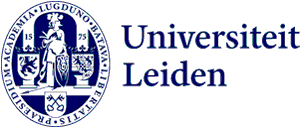
Three NWO Open Competition grants for Leiden scientists
Smart drug carriers, uneven cosmic expansion, and solar energy storage in molecules. These are the topics of three newly awarded NWO-XS grants to researchers at the Faculty of Science.
Peptocarriers: a versatile approach to improve drug delivery inside cells
Joachim van Guyse - LACDR
Peptide therapies combine the precision of biological medicines with the flexibility of smaller molecules, offering powerful treatments with fewer side effects. However, most peptides currently on the market are only used for targets outside the cell, as they struggle to cross the cell membrane.
To address this, Van Guyse and his team are developing Peptocarriers — a smart technology that enables efficient intracellular delivery of peptides. They use different chemical strategies to ensure the peptides are released at exactly the right place and time. Their initial focus is on peptides targeting cancer. If successful, this approach could also pave the way for treating other diseases that require activity inside the cell.
Is the universe lopsided? Mapping cosmic expansion
Konstantinos Migkas - Leiden Observatory
The universe is constantly expanding — that much is clear. According to prevailing theories, this expansion occurs at the same rate in all directions. But recent observations suggest that might not be the case: the speed of expansion could vary depending on the direction.
If true, this would have major implications for our understanding of the cosmos. Migkas is therefore investigating galaxy clusters, the largest structures in the universe, to test whether there are real directional differences in expansion. He uses the newest and most extensive datasets of X-ray-emitting galaxy clusters. This will allow him to examine potential variations more precisely than ever before and assess whether our current cosmological models still hold up.
Storing solar energy with molecular switches in tiny spaces
Julia Villalva - LIC
For a sustainable future, it’s crucial not only to generate solar energy efficiently but also to store it effectively. One promising method involves molecular photoswitches: small molecules that change both shape and energy state when exposed to light, thereby storing solar energy in chemical bonds.
However, in solid and densely packed materials — the kind needed to efficiently capture sunlight — this switching often performs poorly. Villalva and her team aim to tackle that issue. They plan to confine the photoswitches in the tiny cavities of nanotubes to enhance their performance, moving one step closer to practical applications of this technology.
The Open Competition in Science is a grant scheme of the Dutch Research Council (NWO). Within this programme, researchers can submit proposals for curiosity-driven, unfettered fundamental research in areas such as Earth sciences, astronomy, chemistry, computer science, life sciences, physics, and mathematics. The XS grants specifically support bold and innovative ideas. Recipients are awarded €50,000 for a one-year project.
